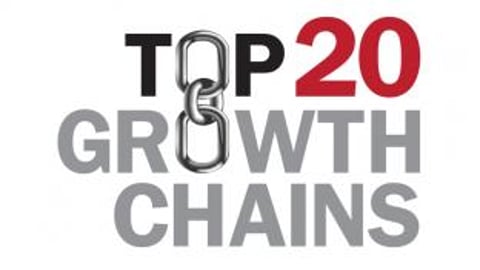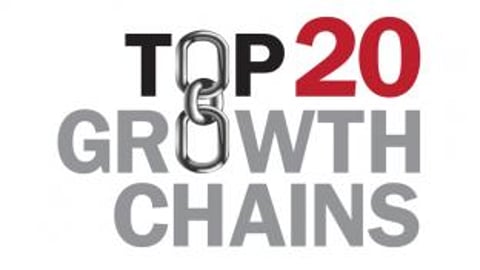Acquisitions Are Expertise of 2018 CSNews Top Growth Chain Couche-Tard
LAVAL, Quebec — Alimentation Couche-Tard Inc. is no stranger to the annual Convenience Store News Top 20 Growth Chains ranking. In the seven years that the report has been published, the Circle K operator has earned a spot on the list six times — and each time, within the top six.
Couche-Tard is also no stranger to finding itself at No. 1 on the ranking, as it does again this year. The first time was in 2016, when it acquired The Pantry Inc. and added 1,510 net new stores, growing its U.S. footprint by 39.4 percent. This past year, it acquired CST Brands Inc. and added 1,253 net new stores, growing its U.S. store count by 23.4 percent.
The way mergers and acquisitions expert Terry Monroe sees it, Couche-Tard will end up as the largest convenience store chain in the country before long. “They will eventually be the McDonald’s of the convenience store business because of their business model,” he said of the now roughly 6,600-store operator. “They will become the national brand for convenience stores.”
Monroe commends Laval, Quebec-based Couche-Tard for being a good acquirer of stores, with a business model that makes things easy for the seller.
“Let’s say that Couche-Tard was buying a 500-store chain. Chances are about a third of the stores they are intending to acquire do not fit the corporate business model, but they have a dealer program whereby the stores that may not fit the corporate business will fit the dealer model. Therefore, Couche-Tard will keep two-thirds of the stores as corporate and company-owned stores and the rest will be sold or leased to dealers who will carry the Circle K brand and contribute to the profitability of the parent company,” Monroe explained. “Everyone wins — the seller, the buyer and the dealers.”
Couche-Tard’s size, access to capital and adeptness at assimilating assets into the company make the retailer a formidable consolidator and “just a very good operator,” according to Dennis Ruben, executive managing director of NRC Realty & Capital Advisors LLC.
“They’re just very efficient in how they operate their acquisitions. Part of what they’re able to do is eliminate of lot of their corporate overhead because as they grow, their overhead per store keeps going down. So then, they’ve been able to pay more,” he explained. “And the larger the company, the more buying power they’re going to have with suppliers and other vendors.”
Petroleum Capital & Real Estate LLC Managing Director John C. Flippen Jr. similarly points to Couche-Tard’s economies of scale in both operations and cost of capital. “If you can save more than the next competitor, you can pay more than your competitor,” he stated.
“One of the first things we typically advise our clients on when bidding on a package of assets is that it is not about the current business EBITDA, but the projected EBITDA that your company can produce. If the acquiring company is able to cut overhead, increase inside sales/margins and increase fuel margins, they will produce a higher EBITDA,” Flippen continued. “And if you combine those advantages with both traditional and non-traditional financing, that is how you win these bids.”
RIPPLE EFFECT
But what impact is Couche-Tard’s continued growth having on the c-store industry at large?
Flippen believes the retailer is motivating other players to speed up the industry’s consolidation due to concerns about “missing out,” while Ruben foresees Couche-Tard’s growth leading to fewer players bidding and buying c-store companies — and then falling prices.
“The more big players that they or somebody else buys, the fewer bidders there are going to be for some of these deals, which probably means it’s going to maybe drive prices down a little bit,” Ruben pointed out.
For now, Mark Radosevich, president of PetroActive Real Estate Services LLC, says Couche-Tard is keeping the multiples high for quality, high-performing facilities. However, he questions if all of the assets Couche-Tard is buying can withstand the test of time. He believes the likelihood is high that the retailer will have to divest many underperforming sites.
Aside from its booming store count and geographic reach, Couche-Tard’s strength also lies in the pricing pressure at the pump it is able to exert on competing retailers, and its investment in fresh, said David Bishop, managing partner of sales and marketing firm Balvor LLC.
Couche-Tard’s fuel rewards program additionally offers consumers significant savings in the price per gallon they pay, which in turn drives more customers onto its store lots. At the same time, by investing in fresh with its new hot dispensed beverage and bakery programs, Couche-Tard is improving in-store traffic and margins, according to Bishop.
“The combination of these two factors, along with the fact that they have a strong private label cigarette program, makes [Couche-Tard] a formidable competitor for most,” he said.
Look in the March issue of Convenience Store News for our full 2018 Top 20 Growth Chains report.






